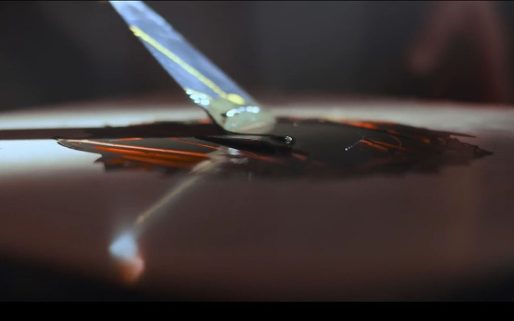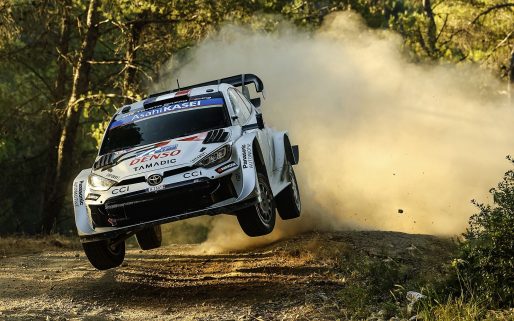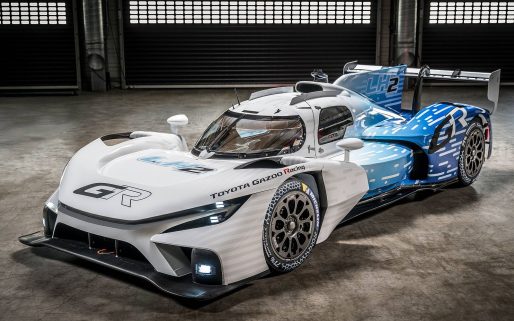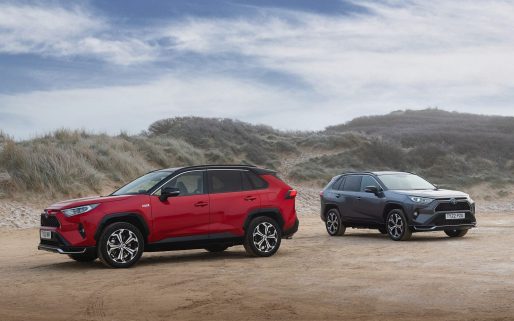Inspirational success has been enjoyed by Special Olympics GB throughout 2023. In the summer, a team of athletes from England, Scotland and Wales returned from the Berlin Special Olympics World Games with an incredible haul of 137 medals and 47 ribbons following a series of outstanding performances across 17 sports.
These amazing achievements helped to increase awareness in Special Olympics GB’s primary objective, which is to provide sporting opportunities at all levels for people with intellectual disabilities across the country.
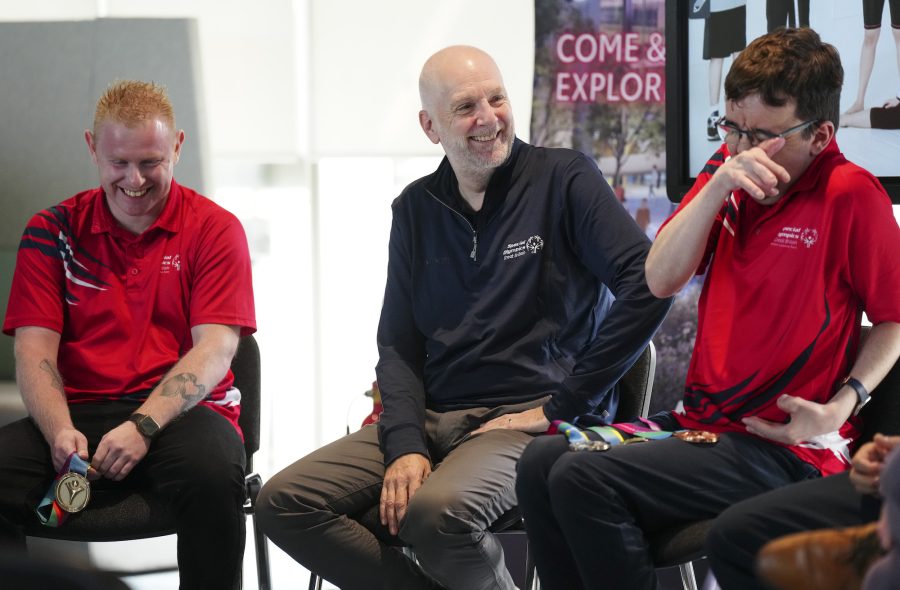
During a recent visit to TGB’s headquarters, athletes and officials from Special Olympics GB spoke to the Toyota Magazine about their achievements, ambitions and the challenges they have each faced.
In the coming weeks, we will bring you interviews with athletes Matt Dodds, Mitch Camp and Dominic Hsu. To kick off our series, Special Olympics GB’s Chief Executive Officer, Colin Dyer, helps to set the scene by telling us more about the organisation’s mission, his reflections on Berlin and his aspirations to achieve societal change when it comes to attitudes towards people with intellectual disabilities.
What is the overarching mission of Special Olympics GB?
“We are the largest provider of sport for people with intellectual disabilities in Great Britain. We provide 27 sports. These include most of the standard Olympic sports that you would expect along with some specific sports such as boccia and bocce [two variants of ‘ball and target’ sport], which form part of the Special Olympics movement.
“We have a presence in England, Scotland and Wales with about 95 clubs, 6000 athletes and between 3000 and 4000 volunteers who make it all happen. We’re a grassroots organisation, so while it is great to tell the stories of the competitors who go the Special Olympics World Games and win medals, the core of Special Olympics GB is our club activity, which goes on every week of the year.”
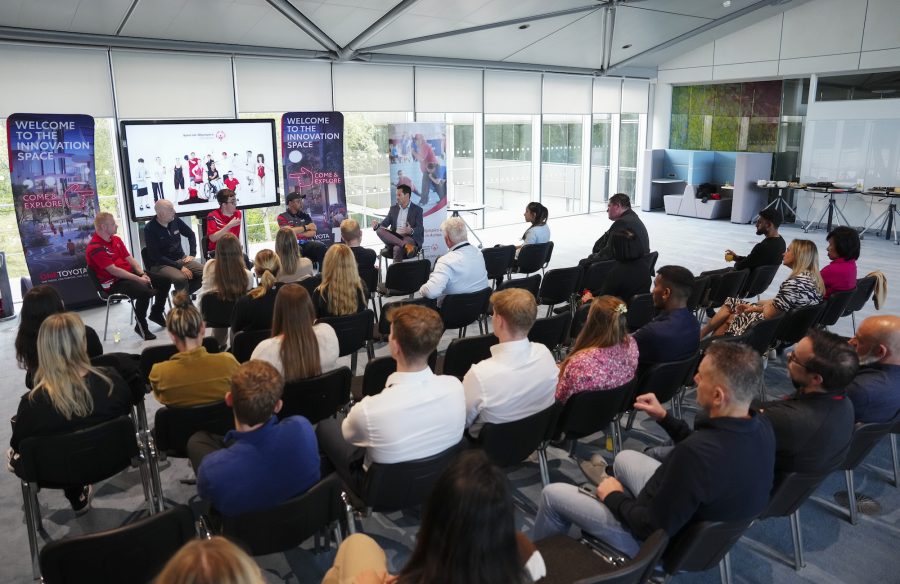
How important is it for Special Olympics GB to continue growing its grassroots network?
“We aren’t as big as we need to be – it’s a simple as that. Over the past couple of decades, Special Olympics hasn’t had the growth plan it has needed in Great Britain. Without a network of clubs which offer an opportunity to participate to anyone who wants it, we haven’t done our jobs. Our aim is for an individual with an intellectual disability to visit the Special Olympics GB website, find a club near them and then get involved, due to the enormous beneficial impact that involvement and inclusion with Special Olympics has.
“This is our hardest challenge, but also our most important one. To grow the organisation to a point where we can make a club pop up in everybody’s community, we need more money, more people, more relationships, and more partnerships such as the one we have with Toyota GB.
“We are part of a global movement – everywhere around the world Special Olympics is about community sport and opportunities for all – but we also have a pathway through regional, national and international competitions, such as the Special Olympics World Games. Not everybody wants to do compete at that level. For the athlete who goes to their local club to play badminton on a Thursday night, that match is as important to them as a gold medal match in the World Games.”
Did the Special Olympics World Games in Berlin this year create an important legacy?
“It shone a really strong light on Special Olympics and took things to another level. Special Olympics GB took 77 athletes with intellectual disabilities to Berlin – it was a big delegation for us. We had athletes of all ages from all over the country. About one third of our athletes were under 20 years old, but we also had athletes on the team who were over 40. Every one of those 77 athletes has a story to tell and that’s what we’ve done. We used the World Games to really shine a light on what can be achieved and, most importantly as a charity, on the impact on those individuals.”

Did you see tangible benefits in terms of awareness of Special Olympics?
“We saw a big spike in volunteer requests around the time of the World Games and we also saw a spike in people asking about club accreditation, as well as big increases in social media interest. BBC and ITV both came out to Berlin. The ITV relationship was something we fostered. They created amazing content on athletes from different regions of Great Britain. That kind of activity is a different level for us – it hasn’t happened before. It really helped, but how we maintain that now is the trick.”
Special Olympics GB places competitors’ needs at the core of the organisation via initiatives such as the Athlete Leadership Team. How important is this structure?
“Our athletes’ voices are at the centre of everything we do. The Athlete Leadership Team has its own board which meets with the Special Olympics GB board. We’re driven by our athletes and the people we are here for, and that makes a huge difference. I’ve worked for different charities and sporting organisations, and Special Olympics GB is the most inclusive organisation that I’ve ever come across.”
You’ve spoken of your ambition to host the World Games in Great Britain in the future. How big an opportunity would that present for the Special Olympics movement in this country?
“The Special Olympics World Games is the biggest inclusive event in the world. It’s huge – in Berlin there were about 8000 athletes representing more than 200 countries. We would have to bid to bring it here and to do that, we would need to have all our ducks in a row. The biggest one of those would be financial – we couldn’t do it without government support, or without fully understanding the impact the event could have.”
“We wouldn’t view it as merely a sporting event. Instead, we would view it as a societal game-changer for people with intellectual disabilities. It would be a ten-year plan for change with the World Games at the heart of it.”
“An event such as the World Games would be a catalyst for change. People with intellectual disabilities are marginalised. Society in general has done well in the past few years in terms of inclusion of physical disabilities, but we haven’t seen the same with intellectual disabilities. We know that health outcomes, financial expense, employment, mental and physical health are impacted by intellectual disabilities, and we can play a big part in driving that change.”
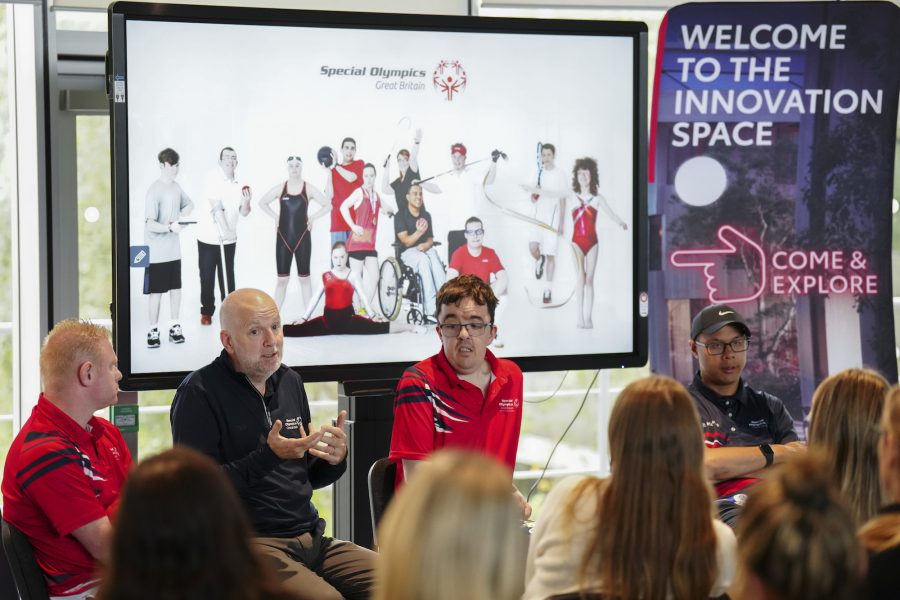
Your partnerships with companies such as Toyota GB seem to be much more than just branding exercises. How important are these deeper relationships to your organisation?
“Profile is a massive challenge for us. We can’t get anything done if people don’t understand what we’re trying to achieve. What Toyota has done is work with us to get under the skin of the message and appreciate what the impact of Special Olympics can be on people who are involved. On top of that there looks to be an inclusive culture with Toyota GB, so it really fits. We’re getting a lot of engagement from people within Toyota and within the past 12 months or more we’ve seen this relationship really develop. It feels like we’re part of the family now.”
On a personal level, what are the highlights of your time as CEO of Special Olympics GB so far?
“One of the first events I attended after being appointed as CEO was a small golf coaching event for about 20 athletes. The golf coach at the club was incredible, and because the event was so small with no spectators, I was able to quietly sit and observe the interaction and the development of the athletes. It emphasised the impact we are having on peoples’ lives, and that was a huge highlight.
“Then at the other end of the scale, the time trial cycling at the World Games in Berlin was unbelievable. The organisers closed the city and built a time trial course around the Brandenburg Gate. The GB team had some amazing cyclists who came away with medals. The atmosphere was amazing, our team had great support and it was the most special place to be. The moment of reaction at the end of the time trials when our team coach told athletes they had won a medal was one of the most joyous things I’ll ever see.”
Find out more about Special Olympics GB at Special Olympics Great Britain.

